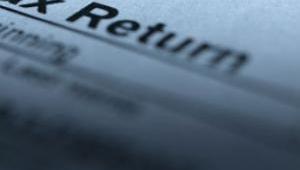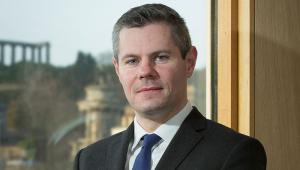Mackay has already seen through an ambitious programme of changes to income tax under which new starter and intermediate bands have been introduced, and a penny added to the higher and top rates. The moves are intended to make the system more progressive while raising an additional £219m this year for public services.
“Our proposition on tax is to use the tax system in a fairer way but also deliver growth and investment in the economy,” Mackay told PF.
“The reason we are diverging is that we want to use our tax system in a more progressive fashion and, clearly, the UK government does not.”
The desire of ministers in Scotland to pursue an increasingly distinctive path on taxation will depend on the future direction of UK tax policy, according to Mackay.
“But I suspect further divergence is inevitable, knowing the principles and policies of what the [Scottish] government wants to deliver,” he said.
Any Scottish tax solution, however, is unlikely to involve substantial change to council tax. After a nine-year freeze, annual increases in the tax have been capped at 3% for the past two years.
A bold plan by the Scottish Government following the 2007 election to replace council tax with a local income tax was dropped in favour of a programme of reform to make council tax fairer, introducing changes to the multiplier to raise more from higher value properties.
“Local authorities like the certainty of the current council tax system, but we should be making it more progressive,” said Mackay.
Further reform was possible, he said, but at the moment there is no parliamentary majority in Holyrood for any alternative to the council tax.
“That said, Scotland is still on a journey in terms of local taxation, and my door remains open to other political parties to see what further reforms may be necessary,” he said.
Council tax revaluation is still firmly off the agenda, with Mackay keen to avoid “unnecessary turbulence” for households. Although he said he was “open to suggestions” on discretionary taxes for local government, there appeared to be little in the way of specific proposals other than a visitor levy, which ministers ruled out because of its potential impact on tourism.
“I want to make sure local authorities are adequately and fairly resourced and, of course, want them to feel empowered but, other than the tourist tax – which has its own issues – no other proposition [has been] put to me on another discretionary tax that local government is actually interested in taking forward,” he told PF.
Overall, Mackay said he believed local government had been treated “very fairly” in a budget earlier this year that saw a real-terms increase to council funding, as well as a £400m boost for the NHS.
“This financial year I had a real-terms reduction to the Scottish budget from Westminster but, using the powers as we have, I turned [that] into real-terms growth for Scotland’s public sector,” he said.
“I recognise local authorities are still facing challenges around population [and] demand for services, which is why as well as being properly resourced there must be ongoing transformation.”
The public sector should be looking at how to share services and management, improve procurement and work together more smartly, he said. Health and social care integration was an example, he said, but more transformation was needed.











